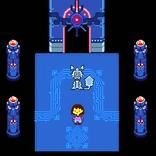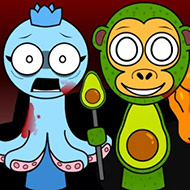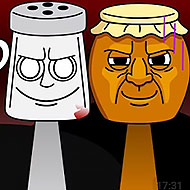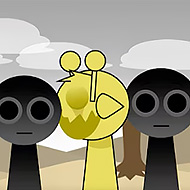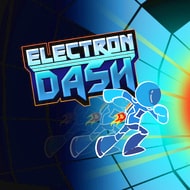
I Didn’t Cheat
I Didn’t Cheat is a dialogue-driven psychological game centered on a student wrongfully accused of academic dishonesty. The goal isn’t to win points or complete puzzles in the traditional sense—it’s to survive a social and emotional interrogation using logic, memory, and composure. With branching choices, shifting attitudes, and consequences that ripple from every word, this game forces players to examine not only evidence, but how they present it under pressure.
Confronting Accusation Through Interactive Dialogue
At the heart of I Didn’t Cheat is a complex system of decision trees where the outcome of every conversation depends on your tone, timing, and clarity. From the first accusation to the final verdict, you must choose carefully how to respond to questions and accusations. Defensiveness can backfire, and staying silent might make you look guilty. Your main tools are what you say, when you say it, and whether you’re perceived as believable.
- Branching Dialogue Paths: Conversations evolve depending on your earlier choices, unlocking or blocking new routes.
- Tone-Responsive System: Saying the same thing with different emotional emphasis can yield vastly different outcomes.
- Credibility Meter: A hidden variable influenced by your consistency, calmness, and evidence usage affects the ending.
Evidence Gathering and Logic Under Pressure
To prove your innocence in I Didn’t Cheat, you’ll need more than just strong words. Throughout the game, players must gather bits of evidence—from past assignments and digital footprints to overheard conversations or behavioral patterns. The tension lies in how and when you present that evidence. Use it too early, and it might be dismissed. Wait too long, and someone else may take control of the narrative.
- Searchable Scenes: Explore your room, phone, school platform, and even memory to find usable data.
- Contradiction-Based Defense: Identify inconsistencies in accusations or witness statements and challenge them.
- Optional Routes: Some evidence can be missed entirely, opening new or harsher paths depending on your thoroughness.
High Stakes, Realistic Tension
I Didn’t Cheat simulates the stress of real-life accusation scenarios. There are no save points mid-interrogation, and no guarantee that telling the truth will lead to justice. This is not a story of innocence being automatically rewarded—it’s a test of how well you can communicate, reason, and resist panic. Each character has their own personality, and they will react to your statements in believable ways, making the stakes feel personal and unpredictable.
- Multiple Endings: Your fate could range from full exoneration to suspension, based on how well you defend yourself.
- Emotional Triggers: Some choices are designed to test how you react under duress, potentially leading to self-sabotage.
- Unreliable Narrators: Not everyone is telling the truth—even your own character may doubt themselves.
A Game That Makes You Think and Feel
What makes I Didn’t Cheat stand out is how grounded it feels. It mirrors real social dynamics—misunderstandings, assumptions, and pressure to confess even when innocent. Instead of relying on traditional game mechanics like health bars or combat, it builds tension through silence, implication, and uncertainty. Every choice is a chance to gain trust—or lose it forever.
Step into the role of a student fighting for their voice to be heard in I Didn’t Cheat, a game that challenges your ability to stay logical, calm, and honest when the world seems intent on blaming you.














